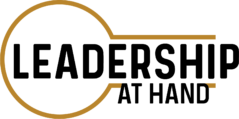If you are like anyone else there have been things that you’ve found that you aren’t that great at. Just by introducing this topic you have probably thought of one or two things that you struggle with. Think back to school subjects, how many times have you heard someone say “Eh, I’m just not good at math”. Part of leadership is facing weaknesses head on and working on overcoming them.
A common strategy would be to work with some sort of coach, tutor, or trainer to get results but what qualifies someone to fill one of these roles? It would be almost impossible to offer guidance to someone struggling at math or weight management if they themselves weren’t excelling in that area. So why is it that even after spending time with someone who is great at something does this skill not just rub off on you?
If you’ve already recognized an area that you need improvement in and have decided that you want to improve in that area you have already addressed the hardest part of self-improvement. If you are in search of advice to get to the next level of performance, you will get the most out of someone who has either experienced the same trouble you have or at the very least studied these challenges and understands how to work through them.
The best coach is the one who has already solved the problem you are currently facing. This idea goes in both directions; if you are facing a challenge, you should find the person who has had to solve the same problem, and if you see someone facing a challenge you have already defeated you should share how you did it.
Someone who is naturally great at something cannot be expected to understand what it would be like to naturally be lousy in the same area. It is impossible to distinguish between someone with natural talent and someone whose ability took years to refine, in this case the result is less important than what it took to achieve it.
The best trainer, coach, mentor, guide, is the one who provides you with what you need to overcome the specific problem that is right in front of you so that you can move on to the next one. For example:
It is a good bet to approach a financial counselor to figure out what should be done with money since they are an expert in this area but maybe they have no idea what its like to be a shopaholic. In this case the shopaholic would find the right person to help them through this issue so that they are then ready to move on and receive advice from the financial counselor.
You will find that as you excel in the skill you are developing the coaches you started off with may not be equipped to handle the problems you will eventually face, In the shopaholic example the person equipped to overcome excessive shopping is not likely to be the person you should be taking financial advice from.
Be sure to match the task and your guide to ensure a good fit.
Remember to:
- Recognize the skill or ability you need improvement in, determine if it is worth improving in this area.
- Look internally to figure out the specific hurdles in front of you.
- Match the hurdles to the right coach.
- Avoid assuming that the person who is great at something will be great at helping you (there is a difference between natural talents and refined abilities)
- Find someone who you can communicate with
- As you refine your skills, continuously evaluate your progress and find new people who will ensure that you make it to the next level.
- Solidify your development by offering to help those facing the same struggles you have already overcome. (Their success ensures your success)
There is no reason to go it alone; chances are that someone has either been in the exact same position you are in and willing to help you get through it or has successfully helped many with this problem and is waiting to help you as well.

